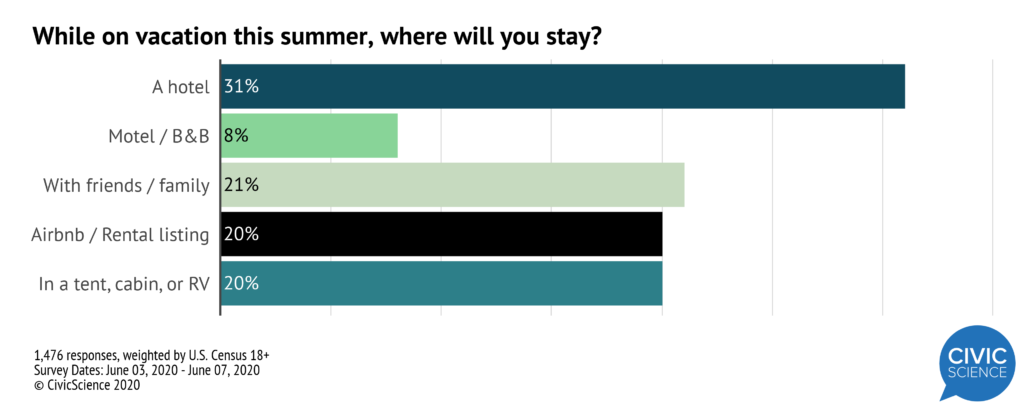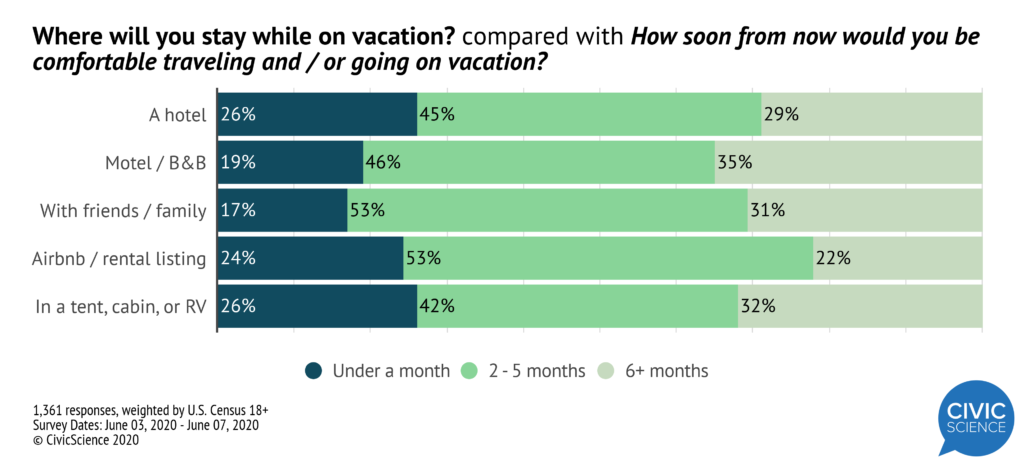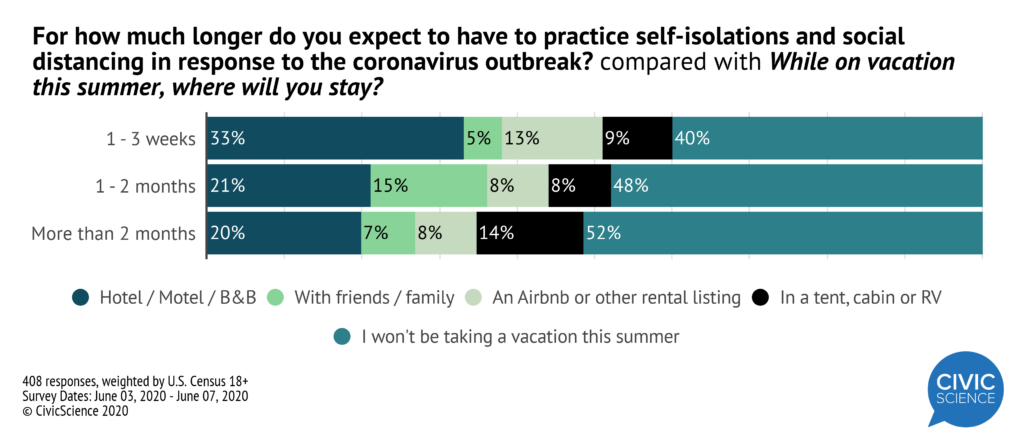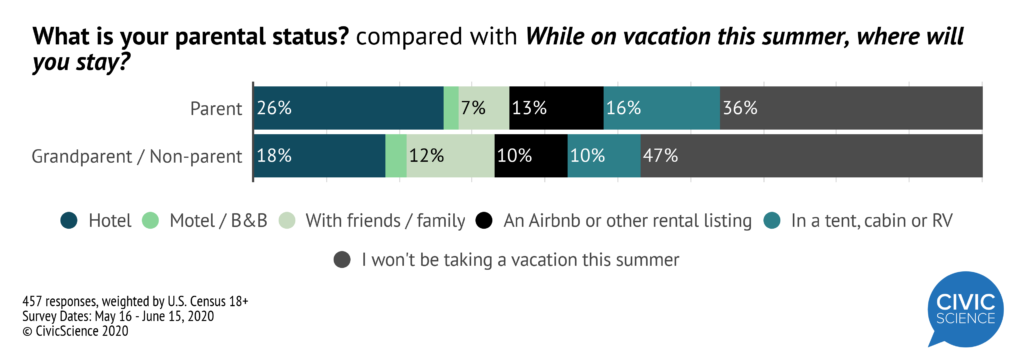It’s shaping up to be a difficult summer for the hotel industry as the coronavirus has upended the vacation plans of Americans.
The dramatic crossover seen in February – and growing still to this day – are the amount of people who plan on staying in hotels this summer versus people who are not planning on taking a vacation this summer. Before the coronavirus hit, 72% of Americans were planning on a summer vacation. Today, that number sits below 50%. Last summer, 29% of U.S. adults planned on staying in a hotel during vacation. This June shows that number dropped to 15%.
Staying with family and friends or going the rustic route have both inched up in popularity in the last month while staying in an Airbnb slipped a bit. 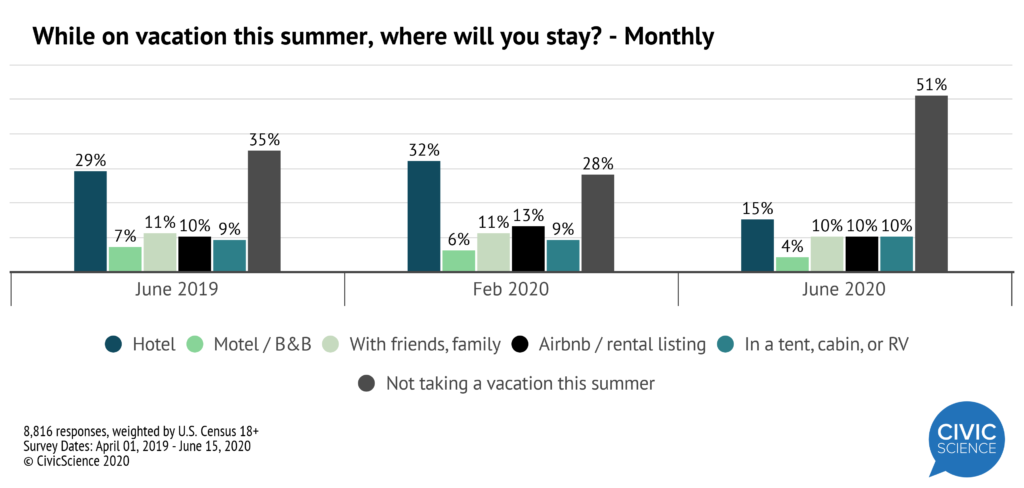
Looking strictly at the near-half of Americans who do plan to take a summer vacation, the numbers don’t get better for hotels, with only 31% of would-be vacationers saying they’d go the hotel route. While that is still the most popular option for travelers, Airbnbs account for 20% of vacationers this year, which is about the same as people who plan on camping or staying with friends or family.
When it comes to immediacy, people who say they’re staying in a hotel this summer (or in a tent, cabin, or RV) are the most likely to say they’re ready to vacation within the next month. Americans who say Airbnb will be their preferred way to vacation this year are overwhelmingly saying they’ll be ready to travel in 2-5 months, which appears to indicate a bit of an Airbnb late-summer run.
Predictably, the longer someone intends to self-isolate, the less likely they are to be planning a summer vacation. And 33% of people who expect to be completely out and about in the coming few weeks say they’ll be staying in hotels for their vacation; that number drops by nearly 50% compared to people who plan on self-isolating for at least the next month.
One group of people who are ready to resume some semblance of vacation normalcy are parents. They are 36% more likely to stay in a hotel, 46% more likely to choose an Airbnb, and are 19% more likely to take any type of summer vacation compared to non-parents.
For obvious reasons, vacation spending is very clearly going to be down this summer, and unless things dramatically change in the coronavirus realm, it would appear hotels – and the cities and summer industries that depend on full hotel capacity – are going to be looking forward to 2021.
